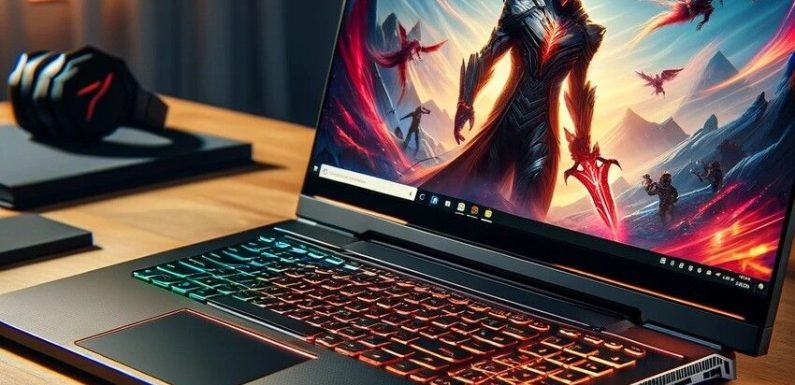
In the fast-paced world of gaming, having a laptop that combines the portability of a notebook with the power of a gaming rig is a must for many enthusiasts. Portable gaming laptops allow gamers to enjoy high-quality gaming experiences whether they’re traveling, commuting, or simply lounging away from their desktop setups. But what are the minimum gaming laptop specs you should look for to ensure a smooth and immersive gaming session? This article delves into the essential specifications to consider when choosing your next portable gaming laptop.
Processor: The Heart of Your Gaming Laptop
The processor, or CPU, is the heart of any computer, and for gaming laptops, it’s particularly crucial. A powerful CPU ensures that your laptop can handle complex game calculations and provide a smooth gaming experience. For minimum gaming laptop specs, look for at least an Intel Core i5 or AMD Ryzen 5 series. These processors are capable of handling most modern games in medium settings. However, for a more future-proof purchase, consider stepping up to an Intel Core i7 or Ryzen 7.
Graphics Card: The Key to Visual Excellence
Arguably the most critical component for gamers is the graphics card or GPU. This is what renders your game’s graphics and the smoother and more detailed the better. At a minimum, look for NVIDIA GeForce GTX 1650 or AMD Radeon RX 5500M. These cards offer decent performance at 1080p resolution. For gamers who want to push their systems to higher settings or enjoy more graphically intensive games, GPUs like the NVIDIA RTX 2060 or higher are recommended.
RAM: Ensuring Smooth Multitasking
When it comes to gaming, RAM (Random Access Memory) is what allows your computer to handle multiple tasks and processes at once. The minimum RAM you should consider for gaming laptops is 8GB. However, 16GB is recommended for a more seamless experience, especially if you plan to stream, chat, or run other applications while playing.
Storage: Speed and Capacity
For gaming laptops, SSDs (Solid State Drives) are preferred over HDDs (Hard Disk Drives) due to their faster read and write speeds, which significantly reduce game load times and improve overall system responsiveness. A 256GB SSD is the bare minimum, but 512GB or more is ideal for accommodating multiple games and media files. Some gaming laptops offer a combination of SSD for the operating system and games, and a larger HDD for additional storage needs.
Display: Quality and Clarity
The screen of your gaming laptop affects how you experience every game. For minimum specs, look for a display that supports at least 1080p resolution. Additionally, a higher refresh rate of 120Hz or more can significantly enhance the smoothness of gameplay, making fast-paced action look crisp and fluid. IPS (In-Plane Switching) panels offer great viewing angles and color accuracy.
Battery Life: Gaming Unplugged
One of the challenges with portable gaming laptops is balancing power with battery life. Gaming consumes a lot of power, so even the best gaming laptops may only offer a few hours of playtime on a single charge. Look for laptops that offer at least 4-5 hours of battery life under gaming conditions, which should be enough for most needs when away from a power outlet.
Portability: Size and Weight
The appeal of a portable gaming laptop lies in its ability to be easily carried around. Aim for a laptop that weighs around 5 pounds or less and is no thicker than an inch for the best blend of performance and portability. Lighter, thinner laptops are often more expensive, so this is a factor to consider based on your budget and mobility needs.
Cooling System: Keeping the Heat Down
Effective cooling systems are vital for maintaining performance and prolonging the lifespan of your gaming laptop. Overheating can cause significant throttling, which reduces the gaming performance. Check for laptops with advanced cooling systems that can keep the heat at bay during intense gaming sessions.
Conclusion
Choosing the right portable gaming laptop requires balancing several specifications to match your gaming needs and budget. The minimum gaming £aptop specs recommended here—like a capable CPU and GPU, sufficient RAM, and speedy storage—ensure that your laptop can handle most games at acceptable settings. However, it’s always a good idea to consider slightly higher specs if you plan for future games or more intensive multitasking. With the right laptop, you can enjoy a fantastic gaming experience wherever you go.
Tech World Times (TWT), a global collective focusing on the latest tech news and trends in blockchain, Fintech, Development & Testing, AI and Startups. If you are looking for the guest post then contact at techworldtimes@gmail.com

